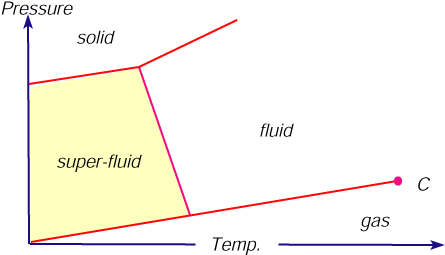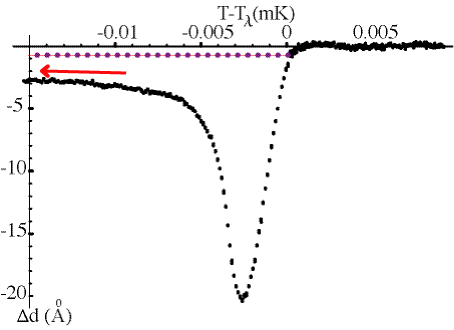Plethora of Fluctuation-Induced Forces (FIF)
![]() The general ingredients are:
The general ingredients are:
Long-range correlated fluctuations in ambient medium (Quantum, thermal, active?)
Disturbance of fluctuations by inclusions in the medium (boundary constraints or otherwise).
![]() Long range correlation also arise due to continous broken symmetry (Goldstone) modes,
Long range correlation also arise due to continous broken symmetry (Goldstone) modes,
leading to suggestions of FIF in several correlated fluids in soft matter:
Liquid Crystals, polyelectrolyte solutions, polymers, membranes, ...
Such forces are difficult to observe as FIF << (direct elastic forces)
Contributions of FIF due to superfluid Phonons and Capillary modes have been observed.
Phonons in the superfluid

![]() The superfluid
phase of helium supports phonons ("mass-less" Goldstone
modes)
The superfluid
phase of helium supports phonons ("mass-less" Goldstone
modes)
![]() .
.
The interaction resulting from (thermal) fluctuations of these modes is:
![]()
H. Li . Kardar, Phys. Rev. Lett. 67, 3275 (1991); Phys. Rev. A 46, 6490 (1992)
Surface Undulations

![]() Can surface
fluctuations account for the (additional) thinning of the superfluid film?
Can surface
fluctuations account for the (additional) thinning of the superfluid film?
"Casimir Forces, Surface Fluctuations, and Thinning of Superfluid Films,"
Zandi, Rudnick, & Kardar, Phys. Rev. Lett. 93, 155302 (2004)
The normal fluid is clamped due to viscosity, while the superfluid has a velocity
![]()
Undulations of the surface set up a superfluid velocity field that extends through the film, and vanishes at the substrate. The corresponding Hamiltonian, and free energy, give


There is a corresponding force:
[Dzyaloshinskii, Lifshitz, Pitaevskii (1961); Mahale and Cole (1986)]

The net effect of phonons and surface undulations appear to account for the thinning of superfluid films:
